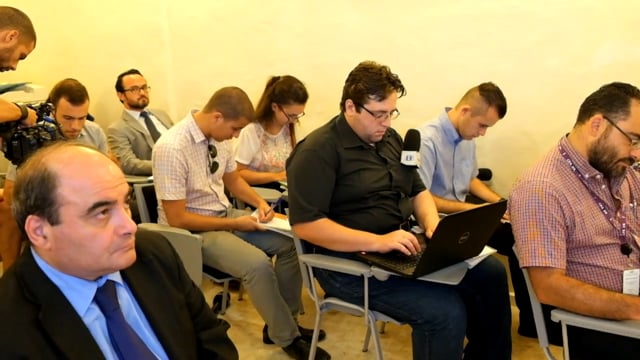[WATCH] Government plans to help low income earners without increasing minimum wage
Finance minister says government exploring means of helping people who are 'cash poor but asset rich'.


The government is exploring methods of helping low-income earners without increasing the minimum wage.
Addressing the launch of the pre-budget document, finance minister Edward Scicluna argued that there are individuals who, although being “cash poor” were “asset rich” or “asset well-to-do”.
“It is an area that requires further study,” he said, while confirming that the government has no plans to increase the minimum wage over and above the cost of living adjustment increase.
In its pension reform plan, the government had proposed setting up a home equity fund for pensioners. Such a fund would allow pensioners to sell their homes in return for payments, but continue living in them until they die.
The minister explained that the goal of the pre-budget document is to look at the previous year, analyse the results registered during the following six months and then prepare the vision for next year.
"Although there is still a lot to do, it is now even clear in people's minds what our plans are. We started off by focusing on the energy sector which was hindering the country's competitiveness. The impact of reduced utility bills cannot be underestimated," Scicluna said.
Speaking durinmg a press conference in Valletta, Scicluna said Malta also had an untapped potential: the female workforce and measures introduced to encourage women to return to the place of work have started bearing fruit.
He also referred to the measures to tackle welfare abuse and the subsequent introduction of making-work-pay schemes.
Attracting investment
The minister said attracting investment was also based on convincing foreign investors that its policy was not to attract FDI ahead of an election but an economic model that the government believed in. "Year after year we worked on reducing deficit which started at 3.7% down to 2.7%, 2.1%, 1.6% this year and we are now targeting 1.1% next year."
Scicluna said the government was making Malta attractive to investors seeking to invest in new markets for Malta: education and health. He reiterated that tapping into the exportation of services also meant that investing in infrastructure.
During a meeting with the constituted bodies, Scicluna was asked whether the projects being pushed by the government were in reality feasible. The minister however pointed out that, while the government would also study the project, it was the investor who had to ensure the feasibility of the project: "It is the investor who's putting money into the project," he said.
Economic growth
The economy is expected to continue to grow at a steady pace with real GDP forecasted to increase by 3.4% in 2015 and 3.1% in 2016. While European Commission forecasts a 3.2% growth, the minister said that for fiscal reasons, one should not be overly optimistic.
Scicluna defended criticism that manufacturing was on decreasing: "We have registered an increase in all manufacturing sectors, with the exception of the electrical equipment group. This decrease however should not give a negative impression on the rest of the groups."
Fiscal developments
In 2014, revenue from current taxes on income and wealth was 0.4 percentage points of GDP higher than expected, reflecting stronger than anticipated labour market conditions, salaries and corporate profits, enhanced efficiency in revenue collection and higher than expected proceeds from the Investment Registration Scheme. General government public debt to GDP ratio was 1.4 percentage points lower than forecast, mainly reflecting a more buoyant macroeconomic environment in 2014.
As for 2015, recurrent expenditure was more than forecasted. Scicluna attributed the increase to the salaries of workers employed in education and health.
While stating that the government was still looking at whether tax ceilings would be adjusted once again, Scicluna said the government was also seeing how to help low income earners with other measures.
Despite ongoing reforms, a study by the World Bank found Malta to have slipped four places in the business friendliness index ranking the island in 94th place out of 189 countries.
"I am unhappy with the report. There are things which we have to work on...issues which are also flagged by the investors. We did carry reforms which were not included in the report on time but we also have a lot to work on," the minister said.
He said, that a task force was currently drafting legislation for a proper framework for the liquidation of companies.
Air Malta
Asked about Air Malta, Scicluna said the work of the Finance Ministry was to pass on €40 million. "Air Malta is determining its own future. Does it need a strategic partner? The issue is in the hands of another ministry. We saw how a strategic partner proved to be of success for Enemalta. Should we do the same for Air Malta? It's not an easy subject and talks are underway," he said.
As part of the Pre-Budget counsultation process, two public meetings will be held on 14 September in Malta and 18 September in Gozo. For further information click here


.jpeg)



.jpg)










.png)





